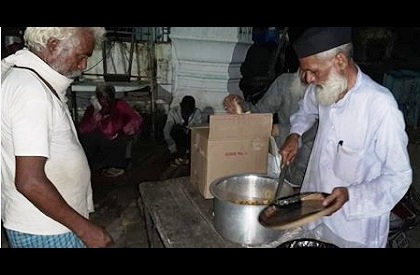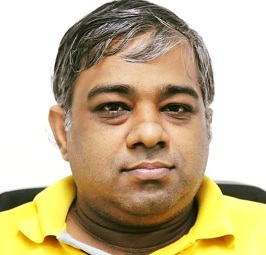Mosque runs Food Bank that provides free food to poor, people hail the decision

Shams Ur Rehman Alavi
NewsBits.in
FAIZABAD: A mosque in Uttar Pradesh has started a Food Bank, offering free food to the poor and needy.
The aim was to help the poor and the homeless apart from those who are sick or arrive from other towns. Little did the organisers realise that there would be such a huge support for the decision.
The mosque committee came up with the concept and it has been executed at the bus stand in Faizabad. The Jama Masjid, Tat Shah, has started it. It begins distribution of food in the evening at dinner time and it obviously helps people from all sections of society.
"It was started in the holy month of Ramzan', says Shadab Ahmad Siddiqui, a businessman. "From labourers to rickshaw-pullers, outsiders and travellers, lot of people arrive at the spot. The Masjid Committee has been the brain behind the food bank", he further says.
"Actually, it was the mutawalli Ghulam Ahmad Siddiqui's wish to start the food bank", says Mr Gulzar who is associated with the Food Bank. "It is a major mosque of the city and we felt that this would be in accordance with the importance of the place too", he says.
"When he put up the idea in the committee, it was instantly okayed and everyone supported it. Now daily, the food is offered free of cost to the poor at the spot. Roti-sabzi and dal-chawal are part of the food apart from tehri on different days", he says.
At times, people bring relatives to hospitals or also have their pockets picked. In these situations too, the free food helps them. Hence, it was felt that it would be a step towards helping the people, as well performing duty towards society. Besides, it is considered a religious duty also to feed the poor.
The initiative has got praise from people across communities. Of late, organisations and people have been doing similar work in different cities--either considerint it a social or religious duty. In Bhopal, Maqbool Mansoori has been doing it for years. Similarly, in Hyderabad, Azhar Maqsusi, is known for similar work.











